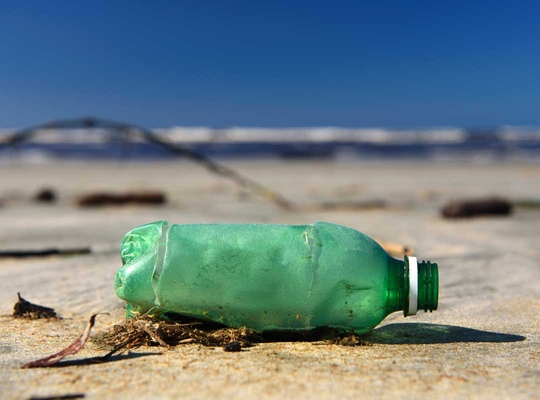You are here
Producers contribute to the cost in the European fight against plastic litter

By 2029, the EU member states have to collect 90 percent of single-use plastic beverage bottles separately. That is one of the measures against litter that the European Parliament approved today. With these new measures, Europe aims to keep litter out of our seas and oceans. MEP Mark Demesmaeker praises the European ambitions in the fight against disposable products. “More than 80 percent of the litter that is found on our beaches consists of plastic, and about half of this comes from disposable products. Without action, there will be more plastic than fish in our seas by 2050. With an ambitious package of tailored measures, we want to turn the tide.”
Ban on OXO
The measures focus on the ten plastic disposable products that are most commonly found on European beaches. Plastic plates and cutlery will be banned. In addition there will be a ban on products made from OXO-degradable plastic. Member states must also seek to achieve a reduced consumption of single-use plastic food containers and plastic drinking cups. In addition, improved product design, labelling and awareness-raising campaigns will contribute to the prevention of litter.
Stricter Flanders
Another highlight is that member states will have to collect 90 percent of single-use plastic beverage bottles separately by 2029. Furthermore, all beverage bottles will have to consist of 30 percent recycled plastic by 2030. In this regard, Flanders does have a stricter recycling goal for plastic bottles of 90 percent by 2022 and a goal of 50 percent recycled plastic for PET bottles by 2025.
Plastic cigarette butts
Europe is also tying in the fight against plastic cigarette filters. “A plastic cigarette butt does not degrade and a single butt can pollute up to 500 litres of water. Producers of tobacco filters with plastic must contribute to the clean-up costs and for the public infrastructure necessary to collect these cigarette butts.”
Producers contribute to the cost
It is essential that producers have to help pay for the disposal of litter from now on. “This is undeniably an important step forward. In Flanders, producers already contribute to the fight against litter, for example through Mooimakers awareness campaigns. But the European proposal goes further and ensures a structural and cost-efficient solution,” MEP Mark Demesmaeker concludes.

